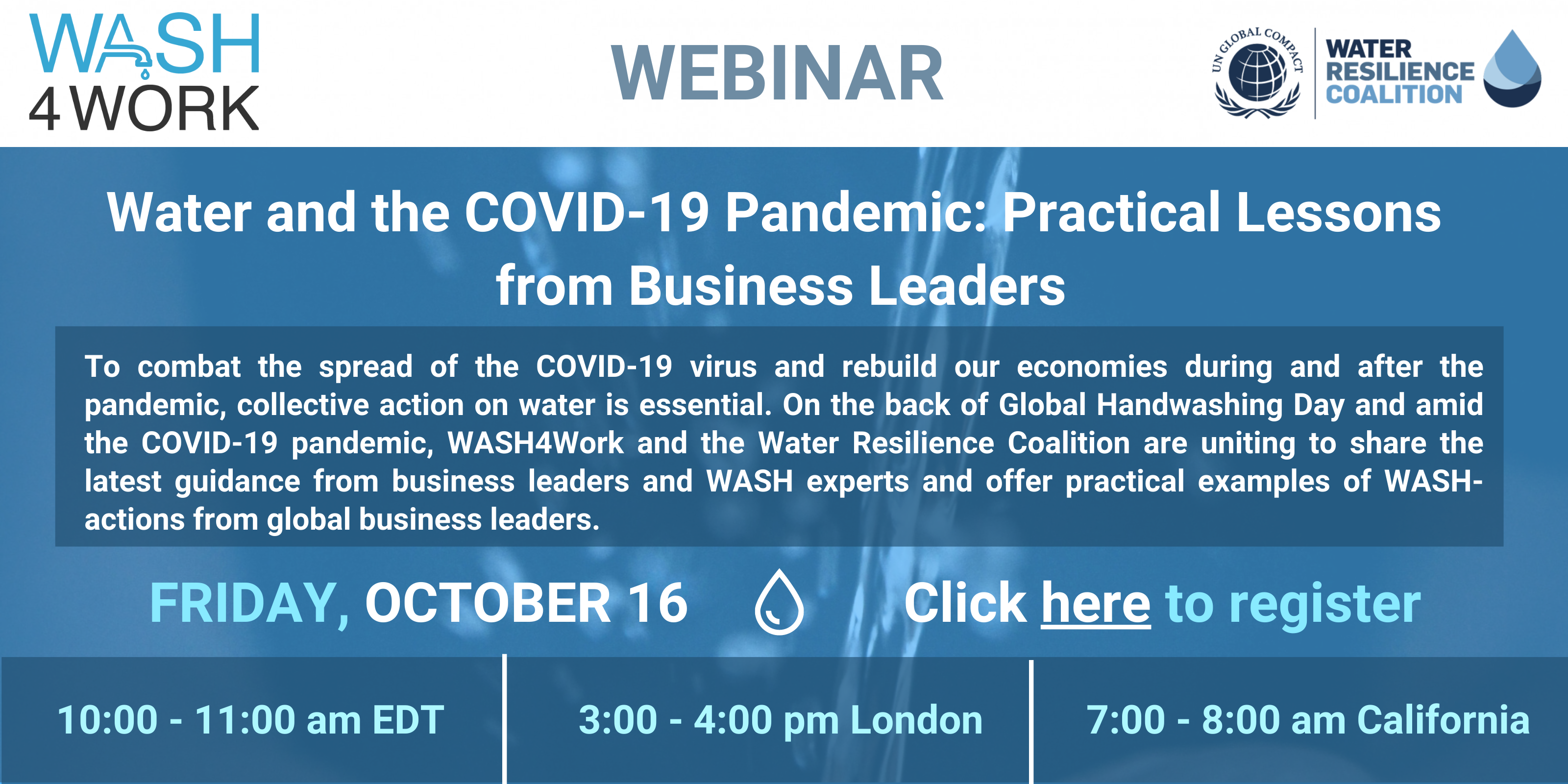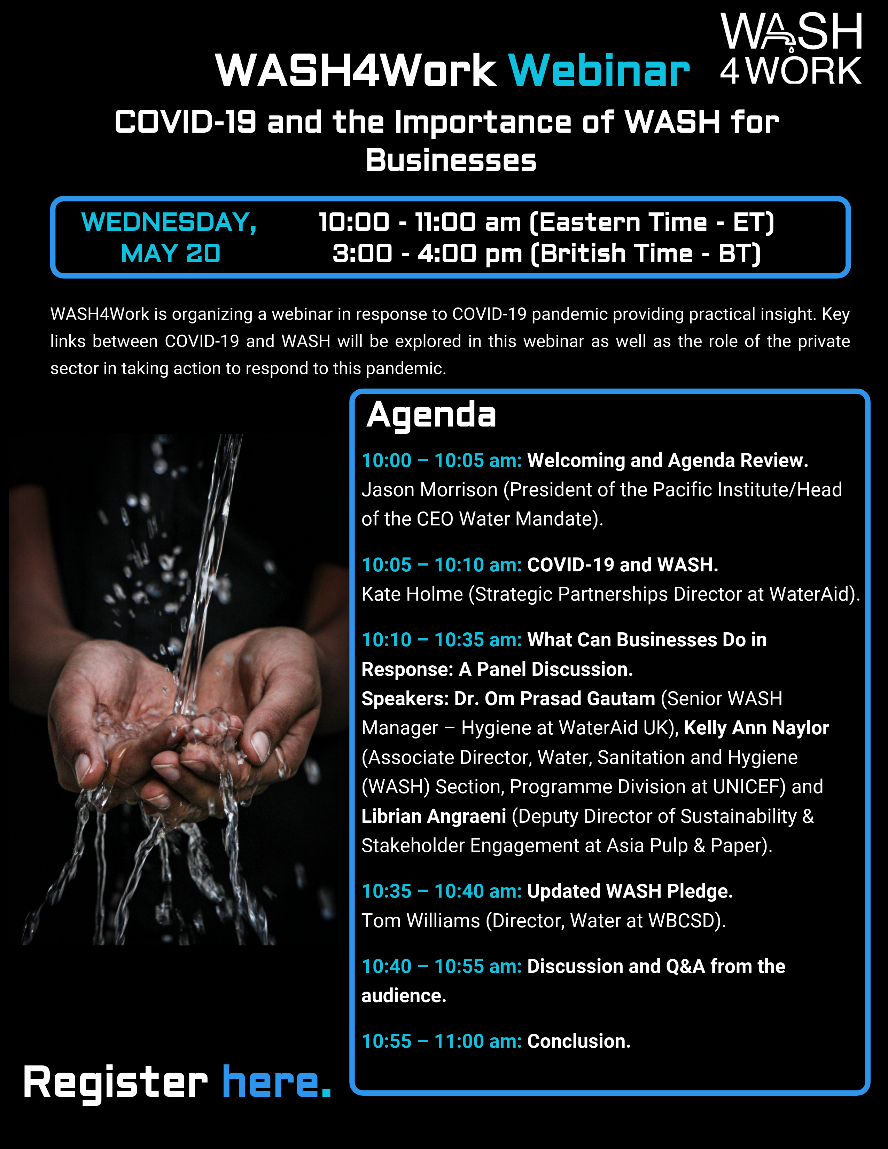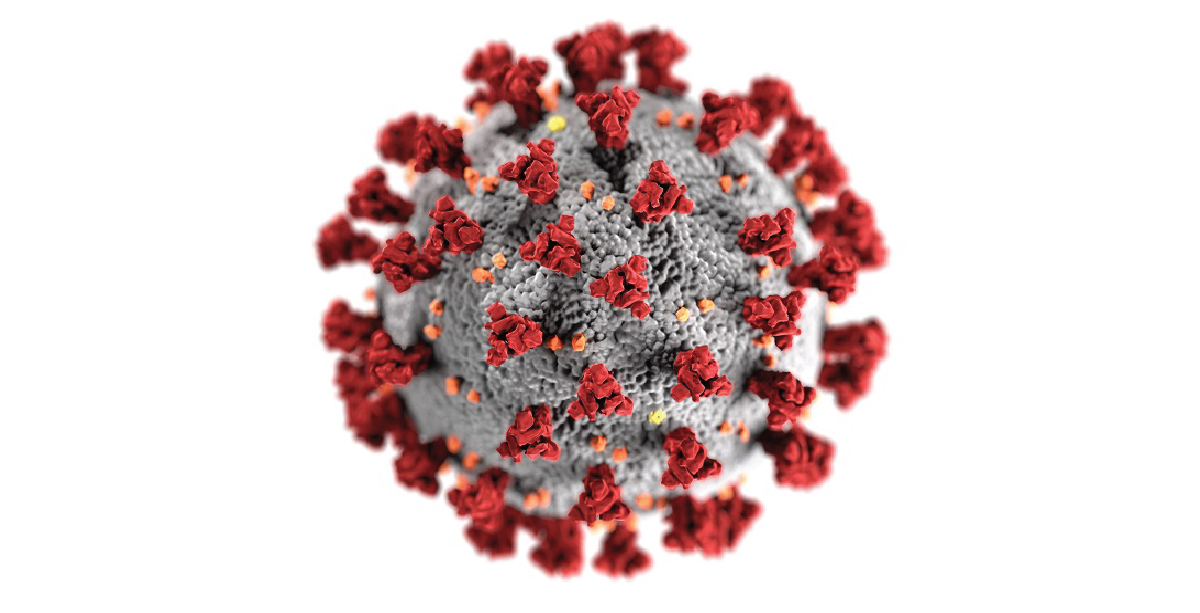
The COVID-19 pandemic highlights the importance and preventive power of water, sanitation and hygiene (WASH) to human health and well-being. Good hygiene, including handwashing with clean water, is the first line of defense against COVID-19 and other viral diseases. With large networks of influence, what responsibility do businesses have in contributing to this access and how do we scale-up current response efforts to build long-term resilient systems?
COVID-19 has laid bare the vulnerabilities of our systems, including those that provide water, sanitation and hygiene. In our least developed countries, nearly 3 in 4 people have nowhere at home to wash their hands with soap and water. Good hygiene behaviours and WASH provision are important in both developed and developing countries particularly within formal and informal work places which includes offices, factories and field locations. Workplaces have the potential to raise transmission risk, as they are spaces where people interact for extended periods of time.
As the world transitions and begins to focus on recovery efforts, businesses will need to invest in prevention measures in their owned and operated facilities and throughout the broader supply chain to ensure the health of their staff and the resilience of the supply chain for business continuity. Importantly, this includes personal and environmental hygiene practices such as handwashing and surface hygiene, and reinforces the business case for taking action on WASH.
Effectively responding to COVID-19 and building long term plans to prepare for potential future shocks will require a holistic approach and collective hygiene response that includes behaviour change and practical action in addition to building strong water and sanitation systems able to withstand the next shock.
WASH4Work partners have responded to the pandemic by launching a number of new initiatives and projects. We are committed to sharing tools, resources, and experiences from companies and other partners here, to support an informed response to this unexpected and unpredictable pandemic.
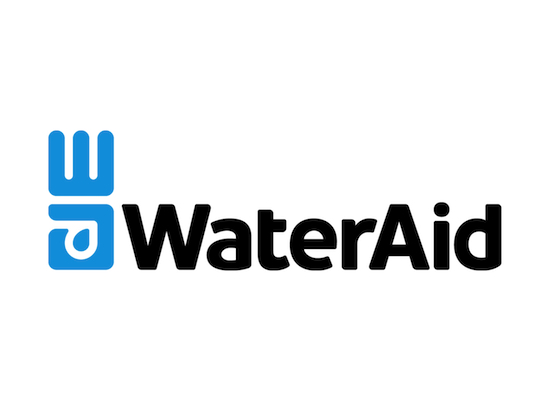
Posted by WaterAid on 20 March 2020
Rising cases of COVID-19 in Africa as WHO advises countries to ‘prepare for the worst’. WaterAid CEO, Tim Wainwright, and handwashing and hygiene experts are available for interview.

WaterAid has a COVID-19 Emergency response
Multi-country initiative on hygiene promotion – the aim is to promote hygiene nationwide in selected countries to prevent COVID-19’s spread.
-
- All 26 WaterAid countries – as basic minimum will amplify key hygiene behaviours using mass media/digital channels and social media linking with COVID-19 in coordination with national government and the WASH sector.
- Priority Focus Countries:
- Bangladesh, Burkina Faso, Cambodia, Ethiopia, India, Nigeria, Pakistan. Selected due to their population size, geostrategic importance and locations where cases have been already been recorded. Mitigating COVID-19 in these settings will reduce its global impact and protect smaller neighboring countries. In these countries WaterAid has strong ongoing hygiene programs that can be leveraged and modified specifically for COVID-19.
- Resilience Building Countries:
- Nepal, Ghana, Mali, Tanzania, Zambia, Malawi, Mozambique, Myanmar. These are countries with a lower risk at present, but where WaterAid has strong existing hygiene programmes we can leverage and where we can build resilience.
- As the context is fast moving, country prioritisation will be assessed regularly.
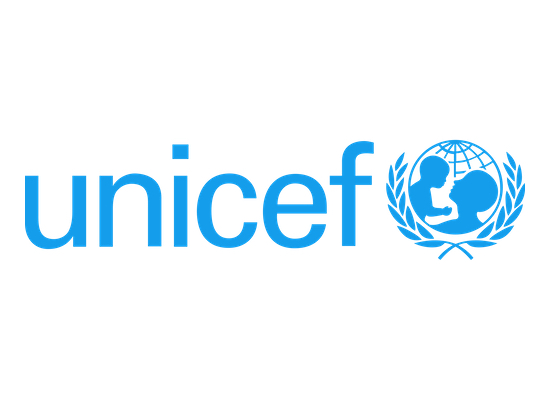
Posted by Kurtis Cooper (UNICEF New York) on 13 March 2020
As the pandemic continues its spread, UNICEF is reminding the public of the importance of handwashing as a key prevention measure against COVID-19 and urging renewed efforts to provide access to this most basic of public health interventions around the world.
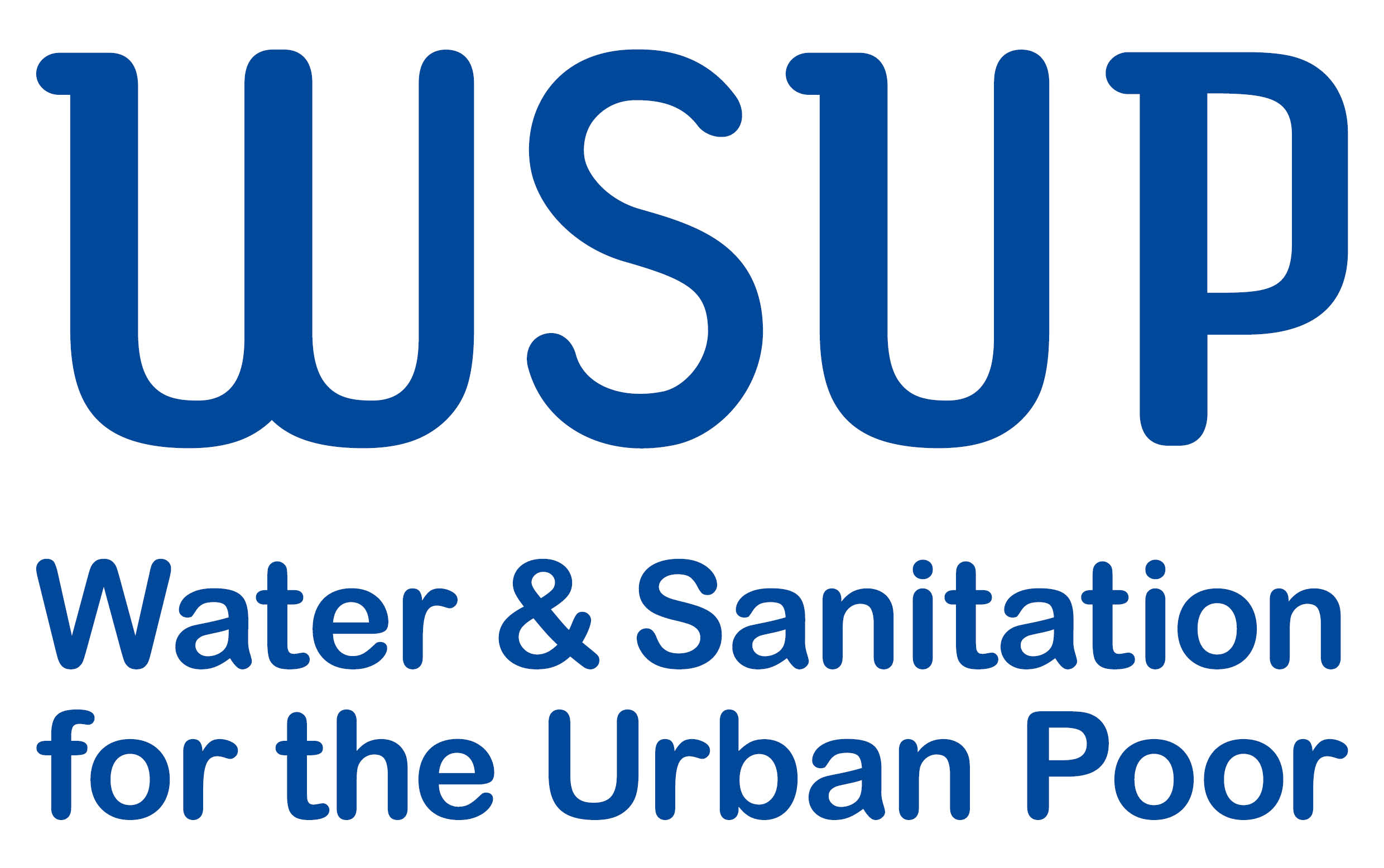
WSUP response to Covid-19: CEO message
A message from Neil Jeffery (CEO, WSUP), posted on 25 March 2020
Access to clean water and good hygiene have never been more important.
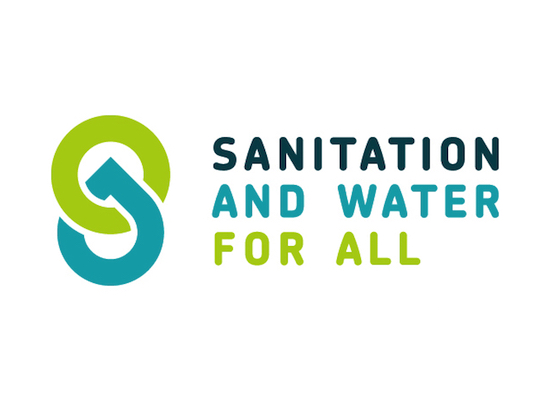
SWA’s response to COVID-19: immediate actions and support to partners
Posted by Sanitation and Water for All Secretariat on 27 March 2020
During this global crisis, SWA wants to continue supporting partners everywhere. SWA created a platform for exchange and dialogue on COVID-19 and water, sanitation and hygiene. They also started a webinar series focusing on COVID-19 and water, sanitation and hygiene.
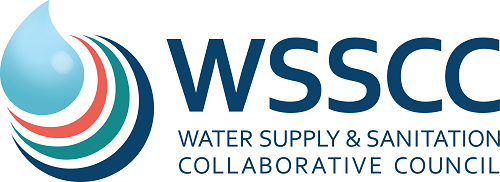
COVID-19: The link between transmission, sanitation and hygiene services
Posted by WSSCC on 31 March 2020
People in least developed countries, people most left behind and least able respond, are impacted most by unsafe sanitation or absence of handwashing facilities. What are the links between transmission of diseases like COVID-19 and sanitation and hygiene services?

Diageo pledges more than eight million bottles of sanitizer for frontline healthcare workers
Posted by Diageo Press Office on 23 March 2020
Diageo has pledged to enable the creation of more than eight million bottles of hand sanitizer, by donating up to two million litres of alcohol to manufacturing partners, to help protect frontline healthcare workers in the fight against COVID-19.

From our CEO: We will fight this pandemic together
A message from Alan Jope (CEO, Unilever), posted on March 24 2020
Bravo Unilever donating $100m of soap, hand sanitizer, bleach and food to communities around the world. As well as extending $500m of credit to small scale producers + retailers in their value chain.
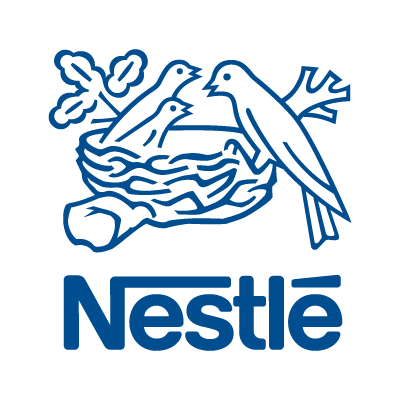
Nestlé, Unilever respond to coronavirus pandemic
Posted by Katy Askew on 26 March 2020
Food industry giants Nestlé and Unilever have unveiled how they are responding to the COVID-19 pandemic to support their suppliers and the communities in which they operate globally.

SASOL responds to increased demand for alcohols used in sanitizers and disinfectants in South Africa
Johannesburg, South Africa, 29 March 2020
Sasol has partnered with government to help combat the spread of COVID-19 in South Africa.

Asia Pulp and Paper Responding to COVID-19 through WASH4Work Perspective
May 27, 2020
Access to clean water and sanitation is a basic human right, and this need has been made all the more urgent by the threat of COVID-19. To this end, APP have been working with NGOs and government agencies to improve clean water access for employees and underserved communities that live and work near their mills. For instance, they have provided them with portable washbasins and raised more awareness on a clean and healthy lifestyle to mitigate the virus. This may be a challenging time for everyone, businesses included. But perhaps this is also the best time to drive home the importance of WASH and the #WASH4Work initiative.
Video: https://www.youtube.com/watch?v=JBgJi_RBaos
Link to the PPT: https://drive.google.com/file/d/1jLx88Em1f8CBEa-NAOFrm5f2AkcrnmdU/view?usp=sharing
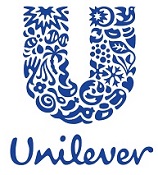
Unilever WASH advocacy intern (WASH in the Community)
Unilever has announced a wide-ranging set of measures to support global and national efforts to tackle the pandemic. It will protect its workforce (including employees, contractors and others who work on its sites) from sudden drops in pay, as a result of market disruption or being unable to perform their role, for up to three months. Furthermore, it will support livelihoods across its extended value chain with €500million of cash flow relief through early payments and extended credit. Unilever has also committed to supporting consumers and communities via €100m of product donations of soap, sanitiser, bleach and food to global health organisations and agencies, as well as other national partnerships and handwashing education programs. A £100m Hygiene and Behaviour Change Coalition has also been set up by Unilever with DFID, in partnership with UN agencies and NGOs. The coalition aims to reach millions of people via mass media campaigns, access to hygiene products and behaviour change interventions, to improve awareness and behaviour on key hygiene practices including handwashing.
WASH4Work members are launching several resources, tools and guidance related to hygiene and water access response for business in the context of COVID-19. We listed below the most relevant resources.
1) COVID-19 and hygiene FAQs:
WaterAid developed a list of resources related to COVID-19, including a graphic with key behaviours to prevent the spread of coronavirus and a short film explaining the importance of handwashing. Please click here to access all the resources from WaterAid.
2) Prioritising hygiene for business resilience: enabling safe return to work for global supply chain employees in the face of COVID-19
Aimed at a business audience, the guidance explains the interdependent nature of workforce health and business resilience, never more critical than in the face of COVID-19. In it we suggest an action plan for companies with global supply chains to develop and implement a return to work strategy relevant to their supply chain. This includes the development of materials that promote hygiene awareness among workers.
https://washmatters.wateraid.org/publications/hygiene-supply-chain-resilience-covid
A poster illustrating behaviours that will reduce the risk of COVID-19 infection for workers in factory and field settings.
WaterAid helps businesses build Covid-19 resilient supply chains by prioritising soap and water for workers
https://www.wateraid.org/uk/media/wateraid-helps-businesses-covid-19
Key messages:
- WaterAid is supporting businesses with global supply chains to implement WASH-focussed COVID-19 ‘return to work’ strategies to safeguard workforce health and ensure operational and financial continuity.
- Unavoidable physical proximity coupled with a lack of soap and clean water for workers to wash their hands – and even a lack of knowledge about when they should be doing so – mean that the threat posed to business by COVID-19 is far from over.
- As a partner of global governments in their fight against COVID-19, with decades of WASH expertise and a global footprint, WaterAid is uniquely positioned to support the private sector in their COVID-19 response plans.
3) New guidelines to help employers support families during COVID-19:
New guidelines issued by ILO and UNICEF call on enterprises to do more to support working families during the pandemic. Download the preliminary technical note here.
4) Understanding hygiene promotion in the context of the coronavirus disease (COVID-19) outbreak (UNICEF guidance note):
This note provides guidance on which aspects to consider when planning and implementing a hygiene promotion campaign as part of a broader risk communication and community engagement strategy. It is not meant to provide a comprehensive guide to designing a behaviour change campaign, but rather prompts and questions to consider when engaging with local governments on behaviour change interventions in the context of this new virus. The content is based on lessons learned regarding gaps in hygiene promotion during past public health emergencies and general programming. Available in English, Spanish and French.
5) Live: Country Experiences on COVID-19 and WASH
Many SWA partner countries across the globe are at various stages of COVID-19 spread and are sharing with us the steps they are taking to prevent and respond to this pandemic.
SWA counts among its partners many who are working at the frontlines–both at the global level, such as WHO, UNICEF– and at the national level-through government agencies, civil society, private sector and research institutes. At the current critical time, access to reliable information, promising practices and thought leadership is crucial.
Therefore, through this live-blog, we will be regularly sharing the approaches our partners are taking to the COVID-19 emergency, and how they are using multi-stakeholder platforms to strengthen preparedness, response and coordination.
https://www.sanitationandwaterforall.org/news/country-experiences-covid-19-and-wash
6) SWA Webinar: COVID-19 and water, sanitation and hygiene
The dramatic spread of COVID-19 has disrupted lives, livelihoods, communities worldwide and has put water, sanitation and hygiene (WASH) at the forefront of all messages. This outbreak demands global cooperation among governments, international organizations, civil society, private sector, research and learning, and all professionals in the sector, to strengthen the systems and make sure that the human rights to water and sanitation are respected.
In this context, SWA is organizing a special webinar focusing on COVID-19 and WASH featuring UNICEF, the World Health Organization (WHO) and Governments.
Recording of the webinar: https://www.youtube.com/watch?v=Tj8PitbdcIo
https://sanitationandwaterforall.org/news/swa-webinar-covid-19-and-water-sanitation-and-hygiene
7) “WASH Coronavirus Away” Poster
Published: March 24, 2020
This printable poster can be used to help raise awareness of key times for handwashing with soap to prevent the spread of COVID-19. It is designed for all audiences and can be downloaded for free through GHP’s resource hub. This poster is available in English, French, and Spanish.
Resource Attachments:
https://globalhandwashing.org/wp-content/uploads/2020/03/CoVid19-infographic-final.pdf (pdf)
https://globalhandwashing.org/wp-content/uploads/2020/03/CoVid19-infographic_fr_final.pdf (pdf)
https://globalhandwashing.org/wp-content/uploads/2020/03/CoVid19-infographic_es-final.pdf (pdf)
https://globalhandwashing.org/wp-content/uploads/2020/03/CoVid19-infographic-final.pdf
8) Blog Five human rights principles that put people centre stage in water, sanitation and hygiene responses to COVID-19
9) Blog: Four things that help water services to combat the COVID-19 pandemic
10) Blog: How can we ensure everyone can wash their hands with soap and water, to protect lives from COVID-19?
11) Workplace safety for COVID-19Guidance on COVID Back-To-Work Preparedness
Guidance on COVID Back-To-Work Preparedness
Water, sanitation and hygiene (WASH) is a critical component of efforts to combat the spread of the coronavirus disease (COVID-19). This includes WASH conditions in workplace settings. While some places of work have remained open since the coronavirus outbreak (e.g. essential services), others have closed. These workplaces are now planning what needs to be put in place to protect worker and public health as people return to work. This document offers employers:
- 1) WASH COVID-19 Rapid Assessment Checklist
- 2) Recommendations to develop WASH infection and control (IPC) measures1
- 3) Guidance to establish a plan for suspected or confirmed cases in order to protect worker health and prevent the further spread of COVID-19
Please also download our Workplace Safety Poster
12) Hand Hygiene Protocol for the Workplace
Hand Hygiene Protocol for the Workplace
In the context of COVID-19, it has become clear that handwashing is a first line of defence for mitigating the potential impacts of COVID-19 in the workplace. Workplaces are often where large numbers of people congregate in close quarters therefore handwashing with soap plays a critical role in combination with other key behaviours (mask wearing, physical distancing) to prevent the spread of COVID-19.
This protocol does not provide new information but consolidates simple recommendations for best practice around handwashing and hygiene in the workplace. It is recommended that this protocol is included in existing standards, certifications and frameworks forming part of mandatory workplace compliance.
WASH4Work is organizing a series of webinars on COVID-19 and water, sanitation and hygiene (WASH). Please find below a list of the past and upcoming webinars.
October 16, 2020 – Rebuilding Through Collective Action on Water and Hygiene: Practical Guidance from WASH Experts and Business Leaders
Context:
To combat the spread of COVID-19 and rebuild our economies during and after the pandemic, collective action on water and hygiene is essential. On the back of Global Handwashing Day, WASH4Work, CEO Water Mandate’s Water Resilience Coalition and WaterAid united to bring together business leaders and Water, Sanitation and Hygiene (WASH) experts.
Such action can not only help to contain the virus, but also to realize the human right to water and sanitation and accelerate the “blue” economy, whereby economic well-being and water resilience mutually reinforce one another.
Handwashing is one of the most effective ways to slow down the transmission of COVID-19, but practicing this life-saving behaviour can be a daily challenge when access to water is compromised and soap is not available. Three billion people around the world still do not have access to even basic hand washing facilities at home. This puts societies and economies at risk and weakens supply chain continuity by threatening the health of the workers. Access to WASH needs to be urgently propelled to the top of the corporate agenda amid the global response to COVID-19.
The business community can play a key role in combatting the spread of COVID-19, as well as rebuilding the economy, securing operational continuity and reducing the risk of future shocks. The response to today’s global health crisis must also address the effects of the climate emergency, and prepare us for the crises of tomorrow, with sustainable WASH services that are fit for the future.
During this virtual session leading businesses and WASH experts shared how companies can take action on WASH to contain the pandemic within their operations, supply chains and surrounding communities. The session provides practical guidance and inspiring examples to drive ambitious, tangible, and collective corporate action which accelerates water and hygiene access for long term resilience.
The webinar featured:
- A presentation from Dr Om Prasad Gautam (Hygiene Specialist at WaterAid) and Peter Schulte (CEO Water Mandate) who introduced the recently launched “Water and the COVID-19 Pandemic: A Business Framework for Water and COVID-19”.
- Practical examples of WASH-related actions companies are taking in response to COVID-19, in their operations, supply chains and communities, individually and collectively (Examples of the Water Resilience Coalition and individual companies)
- Discussions from participants on how the business community can play a key role in combatting the spread of COVID-19, as well as rebuilding the economy and reducing the risk of future shocks.
Read a blog post on the webinar from WASH4Work’s Giuliana Chaves Moreira: https://ceowatermandate.org/posts/practical-guidance-wash-experts-business-leaders/
Access the Hand Hygiene Protocol for the Workplace: https://wash4work.org/tools-resources/hand-hygiene-protocol-for-the-workplace-2020/
Watch a recording of the webinar below.
May 20, 2020 – COVID-19 and the Importance of WASH for Businesses
Context
The COVID-19 pandemic highlights the importance of good hygiene and clean water as the first line of defense against COVID-19, and other viral diseases. With large networks of influence, what responsibility do businesses have in contributing to this access, why is it equally a first line defense for operational resilience and how do we do it? This webinar will explore the key links between COVID-19, WASH, and the role that businesses can play to take action in response to this pandemic.
We have seen partners of WASH4Work respond to the pandemic by launching a number of new initiatives and projects. This webinar brings together companies and partners to share their experience in coping with such unexpected and unpredictable pandemic. We encourage companies and WASH colleagues to join this webinar, contribute to the conversation and share key learnings.
Read a blog post on the webinar from WASH4Work’s Giuliana Chaves Moreira: https://ceowatermandate.org/posts/covid-19-importance-wash-businesses/
Download slides from the webinar here.
Watch a recording of the webinar below.


